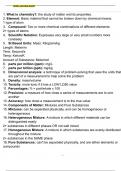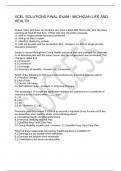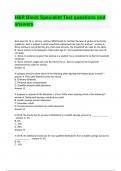Summary
Summary Robbins adn cortan pathology, Neoplasia chapter 7 summery
- Course
- Institution
- Book
This document provides a comprehensive summary of the Neoplasia chapter from Robbins Pathology. It covers the key concepts, definitions, and characteristics of neoplasia, including benign and malignant tumors, carcinogenesis, and tumor markers.
[Show more]













